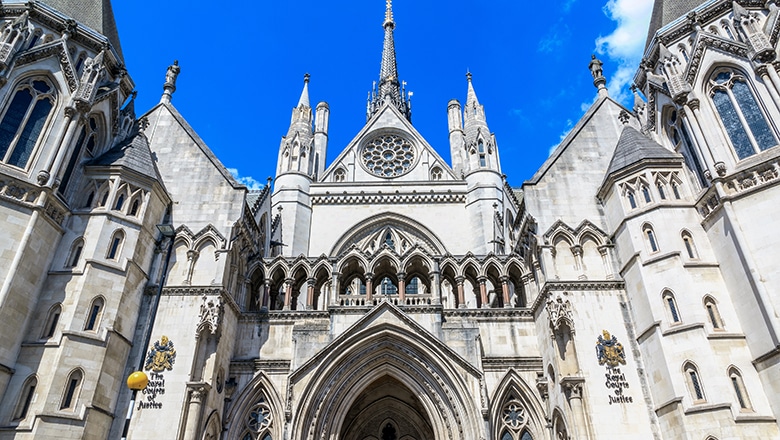The Court of Appeal case of Re Compound Photonics Group Ltd; Faulkner v Vollin Holdings Ltd [2022] EWCA Civ 1371, in the context of an unfair prejudice petition filed according to Section.994 of the Companies Act of 2006, the Court of Appeal has clarified the meaning of the contractual responsibility of good faith. The decision offers crucial clarification regarding the scope and construction of contractual provisions obliging the parties to act in good faith is under appeal from a ruling that majority shareholders of a company engaged in unfairly prejudicial conduct by ousting two directors with minority interests.
You will be assisted throughout every phase of your case process by our specialist litigation team. Whether you are an individual seeking legal counsel or you have hired solicitors and want a second opinion on your course of action.
History between Compound Photonics Group Limited and the Claimants
A group of minority shareholders in Compound Photonics Group Limited brought a claim against the majority shareholders, alleging that they had been unfairly prejudiced by the decisions of majority shareholders in forcing the CEO to resign and removing the chair of the company from office. Both were among minority shareholder claimants
The claimants’ status as directors were not expressly stated in the Company’s articles or the shareholders’ agreement. Instead, the claimants cited the shareholder agreement’s express obligation of good faith which stated:
“Each Shareholder undertakes to the other Shareholders and the Company that it will at all times act in good faith in all dealings with the other Shareholders and with the Company in relation to the matters contained in this Agreement.”
The claimants argued that this clause required the majority shareholders to abide by the inherent “bargain” outlined in the SHA and the Company’s articles, which stated that the CEO and chair of the company should be indefinitely appointed as directors and that the majority shareholders should not have the final say in how the Company will conduct business. On the other hand, the majority shareholders contended that by behaving honestly and within the bounds of business reason, they had complied with the good faith requirement.
What was the High Court’s View?
In Faulkner v. Vollin Holdings Ltd [2021] EWHC 787(Ch). The High Court determined that the dismissal of the CEO and the Chair as directors had violated the contractual good faith commitment and adversely harmed the minority shareholders.
The High Court followed Unwin v. Bond [2020] EWHC 1768 (Comm) in interpreting the good faith clause and came to the following minimum criteria for parties who are subject to a duty of good faith:
They must act honestly, refrain from abusing their authority, deal fairly and openly with the other party, and have regard for both that party’s interests as well as their own. The trial judge referred to this as “fidelity to the bargain.” They must also act honestly and faithfully to the parties’ agreed-upon common purpose as derived from their agreement.
The trial court described the parties’ agreement as a “constitutional settlement” in which the CEO and Chair would hold the balance of power as the board of directors’ essential members, free from shareholder oversight in the company’s operation. The clauses of the shareholder agreement and articles that did not directly address the matter but, in the judge’s opinion, anticipated that the CEO and Chair would continue to hold directorships served as the foundation for this decision. Therefore, by removing the CEO and Chair from their roles, the majority shareholders had broken their contractual obligation of good faith by being unfaithful to the agreement.
The majority shareholder defendants filed an appeal with the Court of Appeal.
What did the Court of Appeal decide?
The Court of Appeal allowed the appeal after finding that the judge had interpreted the good faith requirement too broadly. In his opening remarks, Snowden LJ addressed the English case law since Yam Seng as well as its antecedents in Australian and North American case law.
The Court of Appeal reversed the judgement of the High Court, finding that the defendants had not violated the shareholder agreement’s good faith provision and had not unfairly harmed the minority shareholders. The lead decision was made by Snowden LJ, and Newey LJ and Carr LJ concurred.
The Court of Appeal emphasised that the language in a contract demanding good faith behaviour by a party may only be understood in light of the context in which it appears. Such provisions cannot be constructed in a generic manner, and authorities looking at clauses comparable to them in other legal or commercial contexts should be cautious.
The High Court’s conclusion that any good faith clause must be interpreted to require compliance with the basic requirements outlined in Unwin was rejected by Snowden LJ, who accepted that a duty of good faith must, at the very least, have the core meaning of a need to act honestly.
The ruling is likely to have far-reaching implications for the viability of claims based on express or implicit duties of good faith.
Instructing our Litigation Lawyers
LEXLAW provides the best possible outcome for our clients by conducting in depth investigation and research into the realistic prospects of a case before selecting the appropriate course of action in order to reduce time and expense.
Liability for costs is always an issue in litigation and based on our extensive litigation experience we provide our clients with as much strategic, practical as well as carefully considered legal advice in order to ensure minimum risk in respect of costs.
Where appropriate we encourage the use of alternative dispute resolution (such as mediation and without prejudice negotiation) and our lawyer’s negotiation skills are first class. If early settlement at advantageous terms is not possible, we are extremely experienced and capable at navigating our clients through the litigation process.
